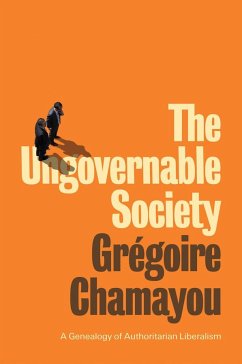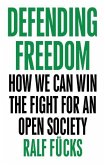Rebellion was in the air. Workers were on strike, students were demonstrating on campuses, discipline was breaking down. No relation of domination was left untouched - the relation between the sexes, the racial order, the hierarchies of class, relationships in families, workplaces and colleges. The upheavals of the late 1960s and early 1970s quickly spread through all sectors of social and economic life, threatening to make society ungovernable. This crisis was also the birthplace of the authoritarian liberalism which continues to cast its shadow across the world in which we now live.
To ward off the threat, new arts of government were devised by elites in business-related circles, which included a war against the trade unions, the primacy of shareholder value and a dethroning of politics. The neoliberalism that thus began its triumphal march was not, however, determined by a simple 'state phobia' and a desire to free up the economy from government interference. On the contrary, the strategy for overcoming the crisis of governability consisted in an authoritarian liberalism in which the liberalization of society went hand-in-hand with new forms of power imposed from above: a 'strong state' for a 'free economy' became the new magic formula of our capitalist societies.
The new arts of government devised by ruling elites are still with us today and we can understand their nature and lasting influence only by re-examining the history of the conflicts that brought them into being.
Hinweis: Dieser Artikel kann nur an eine deutsche Lieferadresse ausgeliefert werden.
To ward off the threat, new arts of government were devised by elites in business-related circles, which included a war against the trade unions, the primacy of shareholder value and a dethroning of politics. The neoliberalism that thus began its triumphal march was not, however, determined by a simple 'state phobia' and a desire to free up the economy from government interference. On the contrary, the strategy for overcoming the crisis of governability consisted in an authoritarian liberalism in which the liberalization of society went hand-in-hand with new forms of power imposed from above: a 'strong state' for a 'free economy' became the new magic formula of our capitalist societies.
The new arts of government devised by ruling elites are still with us today and we can understand their nature and lasting influence only by re-examining the history of the conflicts that brought them into being.
Hinweis: Dieser Artikel kann nur an eine deutsche Lieferadresse ausgeliefert werden.
'A comprehensive account, both historical and systematic, of how and why in the 1970s business began to perceive democratic capitalism as ungovernable, and what it tried to do about this: from corporate reform to strengthening the state while weakening democracy. The book adds importantly to our understanding of the neoliberal revolution, its origins and objectives, successes and failures.'
Wolfgang Streeck, Emeritus Director and Senior Research Associate, Max Planck Institute for the Study of Societies, Cologne, Germany
'Grégoire Chamayou provides a dazzling and wide-ranging genealogy of the intellectual ideas and political strategies which were used to undermine democracy and roll back the economic security and greater equality of the post-war years. An original and rewarding read.'
Andrew Gamble, SPERI, University of Sheffield
'With this elegant and important work, Chamayou will surely succeed in bringing out your inner critic of the powers that be.'
French Culture
Wolfgang Streeck, Emeritus Director and Senior Research Associate, Max Planck Institute for the Study of Societies, Cologne, Germany
'Grégoire Chamayou provides a dazzling and wide-ranging genealogy of the intellectual ideas and political strategies which were used to undermine democracy and roll back the economic security and greater equality of the post-war years. An original and rewarding read.'
Andrew Gamble, SPERI, University of Sheffield
'With this elegant and important work, Chamayou will surely succeed in bringing out your inner critic of the powers that be.'
French Culture








